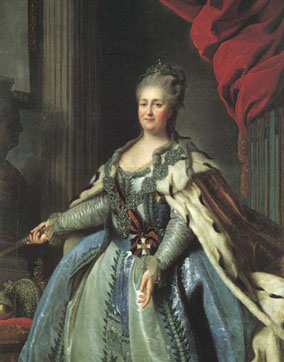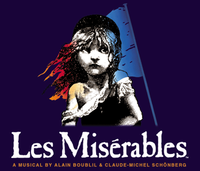Okay, so I'm totally cheating! I actually posted this tidbit once before on my previous blog, but since I've re-vamped it, that blog no longer exists, so I'm posting this tidbit again because...well, it's kind of amusing. I just felt the need to explain in case anyone thought it looked vaguely familiar. :D
Did you know...?
Did you know...?
Catherine the Great was the first progressive ruler of Russia. She called herself an enlightened despot, which meant that she genuinely cared about her people and wanted them to have rights--even fashioned a constitution of sorts--but ultimately also wanted to retain her own power.
While she was on the throne, the peasants in France revolted, crashed the Bastille, and their monarchs, Louis and Marie Antoinette, lost everything from the neck up.
Catharine, though generally all about the rights of a country's common citizens, was horrified that the French peasants had risen up and beheaded their rulers. She was terrified that the same thing would happen to her. When she got the news of the peasants' deeds, she called them "damned rascals."
At the time, this was the worst curse a person could utter--akin to our "f" word or one of the "c" words today.
When I learned this, I felt so validated! I have long thought that when Hollywood makes movies where cowboys in the Old West use the f bomb, that was just us imposing our culture on the past. This proves it!
In the late 1700s, the worst thing a person could be called was a damned rascal, and the fact that the queen, who was supposed to be all grace and poise and daintiness, said it, produced the scandal of the day. :D
That always made me chuckle.
Does anyone else have any interesting history-of-cuss-words stories or tidbits?
Does anyone else have any interesting history-of-cuss-words stories or tidbits?





.JPG)
.JPG)


